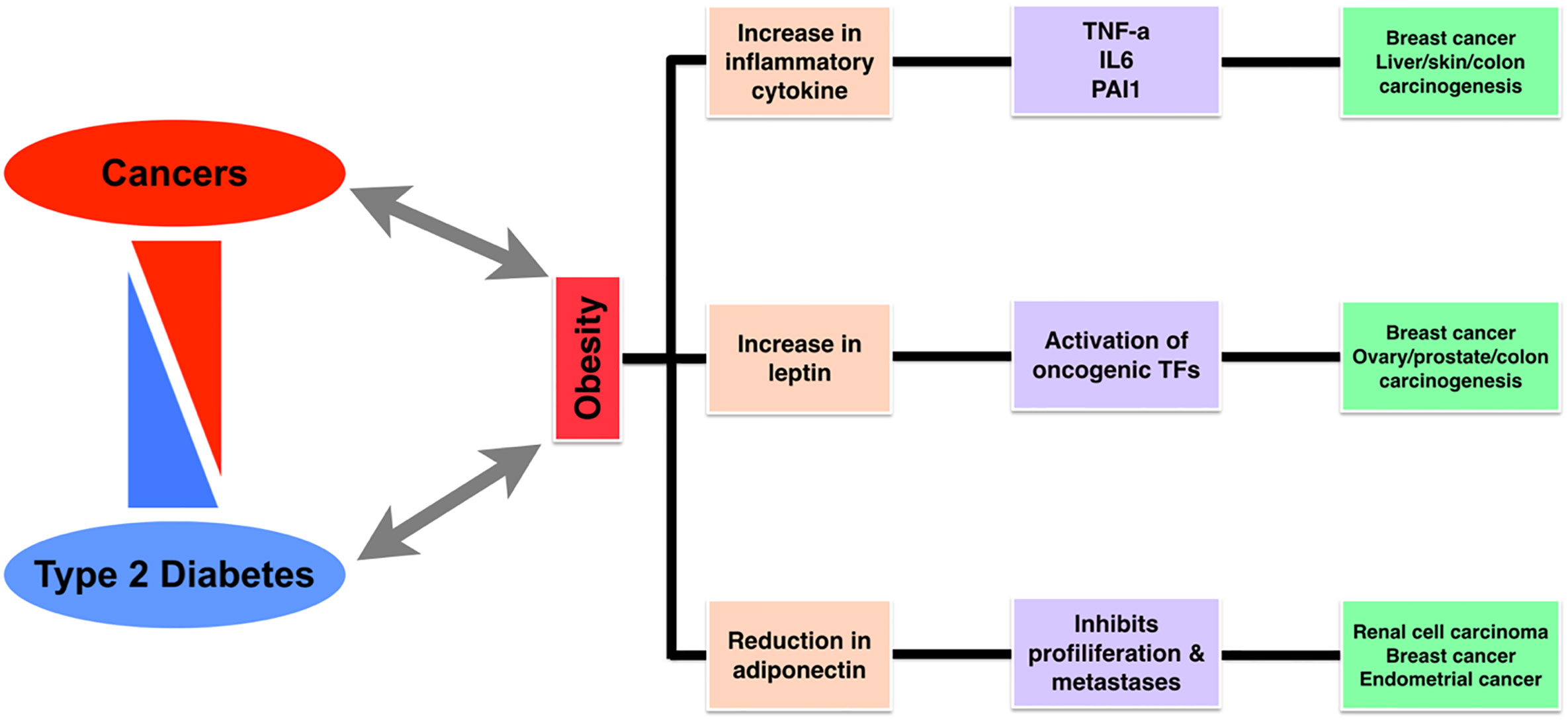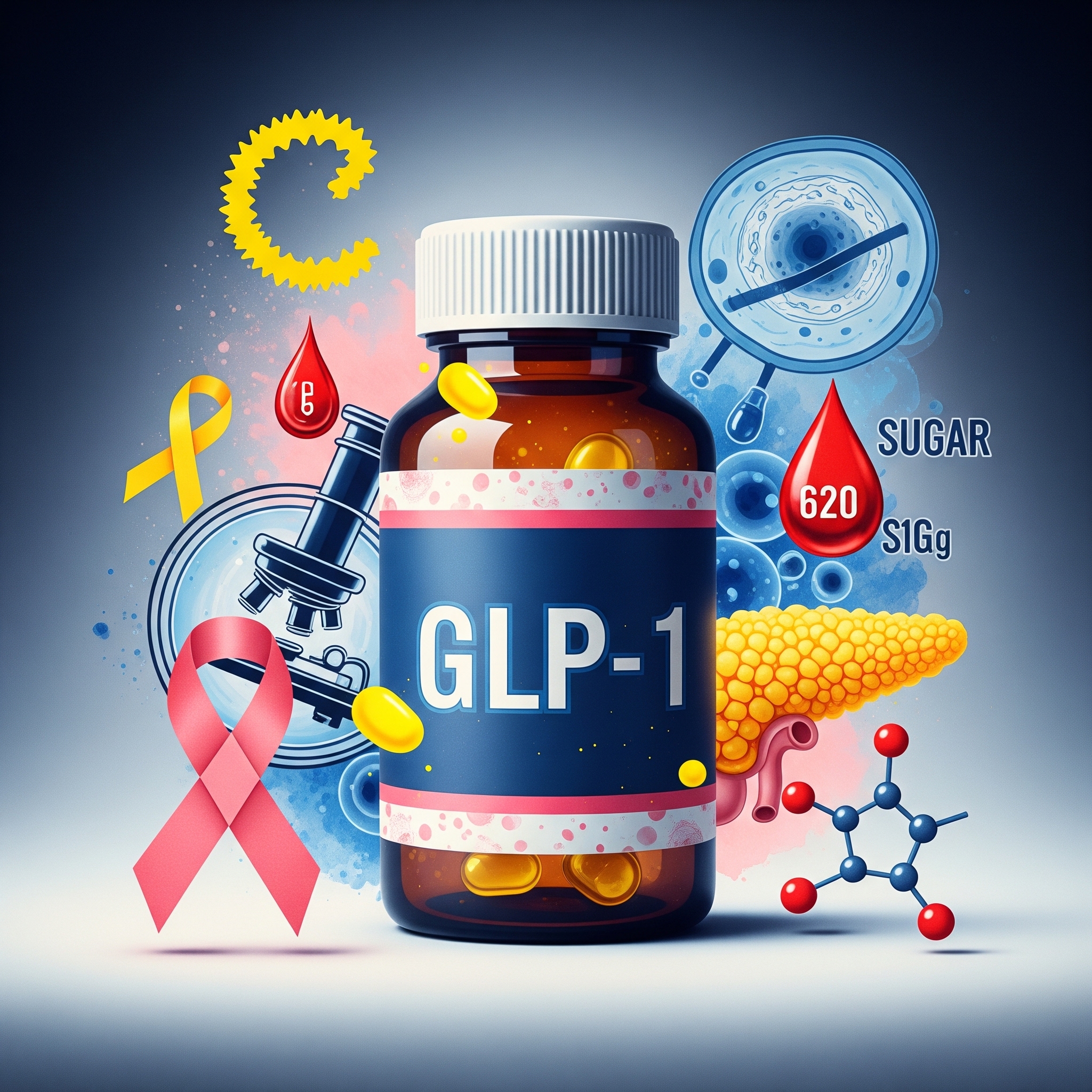Estimated Reading Time: 7 minutes
Introduction
In a groundbreaking turn for medical science, recent research has suggested that certain weight-loss drugs may significantly reduce cancer risk among people with type 2 diabetes. This discovery could reshape how physicians manage two of the most pressing global health issues: obesity and cancer. As new medications enter the market and clinical data becomes more robust, we are witnessing an intersection of metabolic health and oncology that could offer a promising dual benefit.
In this blog, we’ll explore the emerging evidence linking GLP-1 receptor agonists—commonly used in weight-loss and diabetes management—to lowered cancer risk, discuss the mechanisms behind this potential protection, and examine what this could mean for future treatment strategies.
What Are GLP-1 Receptor Agonists?
GLP-1 (glucagon-like peptide-1) receptor agonists are a class of drugs initially developed to treat type 2 diabetes. These medications mimic a hormone that helps regulate blood sugar levels and reduce appetite. Popular drugs in this category include:
- Semaglutide (Ozempic, Wegovy)
- Liraglutide (Victoza, Saxenda)
- Dulaglutide (Trulicity)
Over time, researchers noticed an added benefit: patients were losing weight. As a result, some GLP-1 drugs gained approval specifically for weight management.

The Link Between Obesity, Diabetes, and Cancer
To understand the significance of this discovery, it’s crucial to recognize how obesity and type 2 diabetes are linked to cancer:
- Chronic Inflammation: Obesity can cause long-term inflammation, which may lead to DNA damage and cancer.
- Insulin Resistance: High insulin levels can promote the growth of certain tumors.
- Hormonal Imbalances: Excess fat tissue can lead to increased estrogen, raising the risk of breast and uterine cancers.
People with type 2 diabetes are at an increased risk of developing several types of cancer, including liver, pancreatic, colorectal, breast, and endometrial cancers. Reducing weight and improving metabolic health can, therefore, play a key role in cancer prevention.
Key Research Findings
Several recent studies and clinical trials suggest a potential link between GLP-1 drugs and reduced cancer risk:
- American Cancer Society Research (2024): Patients using semaglutide had a significantly lower incidence of colorectal and breast cancers compared to non-users.
- Lancet Diabetes & Endocrinology Review: A meta-analysis of over 30 studies showed a 20–30% risk reduction in obesity-related cancers among GLP-1 users.
- Real-World Data from Scandinavia: A longitudinal study found that patients on GLP-1 therapy had a 23% lower all-cause cancer mortality.
These studies are observational, and while they can’t prove causality, they indicate a strong correlation that warrants further exploration.

How Might GLP-1 Drugs Reduce Cancer Risk?
Researchers are still investigating the exact mechanisms, but several theories have been proposed:
- Weight Reduction: Lower body fat reduces inflammation and hormonal imbalances.
- Lower Insulin Levels: Reduced insulin may decrease growth signals for tumors.
- Appetite and Behavior: Improved lifestyle and diet through reduced appetite could indirectly lower cancer risk.
- Direct Anti-Cancer Properties: Some studies suggest that GLP-1 may have direct effects on tumor cells, inhibiting growth.
Implications for Treatment
If these findings are confirmed through long-term randomized controlled trials, they could have several implications:
- Broader Use of GLP-1s: Physicians may prescribe them not just for diabetes and weight loss, but also for cancer prevention in high-risk patients.
- Revised Guidelines: Medical guidelines might evolve to prioritize metabolic health as part of cancer prevention strategies.
- Insurance Coverage: Insurance providers could expand coverage for these drugs given their multifaceted health benefits.
Future Directions
The intersection of diabetes, obesity, and cancer prevention could become a new frontier in personalized medicine. Future research may focus on:
- Randomized Clinical Trials to establish causation.
- Identifying Ideal Candidates for dual-benefit therapies.
- Long-term Monitoring for side effects and effectiveness.
- Expanding Drug Development to maximize anticancer potential.
Scientific Studies & Medical Sources
- American Cancer Society – Research on Obesity, Diabetes, and Cancer Risk
🔗 https://www.cancer.org/latest-news/obesity-diabetes-and-cancer-risk.html - The Lancet Diabetes & Endocrinology – Meta-analysis on GLP-1 receptor agonists and cancer risk
🔗 https://www.thelancet.com/journals/landia/article/PIIS2213-8587(23)00255-4/fulltext - National Institutes of Health (NIH) – GLP-1 receptor agonists in diabetes and obesity treatment
🔗 https://www.ncbi.nlm.nih.gov/pmc/articles/PMC8606823/ - Mayo Clinic – Understanding how diabetes medications work (GLP-1 focus)
🔗 https://www.mayoclinic.org/drugs-supplements/glucagon-like-peptide-1-analogs-route-subcutaneous-route/description/drg-20067220
Conclusion
The potential for weight-loss drugs like semaglutide and liraglutide to reduce cancer risk in people with diabetes represents a hopeful advancement in medical science. While more research is needed to confirm these benefits, the current findings offer a compelling reason to continue exploring these drugs beyond their initial purpose. This convergence of metabolic and cancer research could lead to comprehensive therapies that enhance quality of life and longevity for millions.
FAQs
Q1: Can weight-loss drugs cure cancer?
No, they are not a cure for cancer. Current research only suggests a potential reduction in risk, not treatment.
Q2: Are these drugs safe for long-term use?
Most GLP-1 drugs are considered safe, but long-term effects are still being studied.
Q3: Do I need diabetes to benefit from GLP-1 drugs?
No. Some of these drugs are approved for use in people without diabetes, specifically for weight management.
Q4: Are these medications covered by insurance?
Coverage varies by provider and region. Some insurers are beginning to expand coverage due to growing benefits.
Q5: Should I take these drugs to prevent cancer?
Always consult your healthcare provider before starting any medication. These drugs may be appropriate if you’re at high risk.
